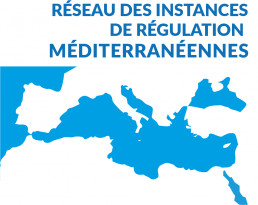Foundation and status
The Catalonian Audiovisual Council (CAC) is an independent authority with legal personality originating in Act 2/2000 of 4 May, approved by the Parliament of Catalonia. The 2/2012 Law of February 22 2012 modifying various provisions of the Broadcasting Act alltered the appointement and the number of CAC members.
Its sphere of activity is the broadcast of media managed by the Generalitat of Catalonia (Government of Catalonia) either directly or through licenses or authorizations and regardless of the form of transmission or technology used.
Role
The purpose of the CAC is to ensure respect for rights and freedoms within the field of the broadcast media, i.e., radio, television and any other system of transmitting sound or images.
Specifically, the CAC monitors compliance with legislation on content in programming and advertising. With regard to broadcast licenses, the CAC advises perceptively in two areas: the conditions proposed in bids to award licenses and the applications subsequently presented.
The CAC also aims to monitor political, religious, social, linguistic and cultural pluralism in the broadcasting system in Catalonia and checks for neutrality and honesty in information. It monitors compliance with regulations regarding the use of the Catalan language and the promotion of Aranese (the language of the Aran Valley in the Catalan Pyrenees).
In order to encourage citizens’ participation, the CAC has an “Office for the Defense of the Audience” for hearing and taking the necessary steps with regard to complaints and suggestions from citizens about programming and advertising on the radio and TV. Everybody who contacts the Office for the Defense of the Audience receives a reply indicating the actions carried out.
The CAC recognises the importance of international cooperation in the field of broadcasting regulation and thus is an active member of different international forums, being a funding member of the Mediterranean Regulatory Authorities Network along with the French CSA.
Duties
Legislation in the audiovisual sphere
Monitors and guarantees compliance with these regulations.
Protection of children and youth
Ensures compliance with prevailing legislation in this field within the sphere of the broadcast media.
Human dignity and the principle of equality
Adopts the measures needed to restore the effects of broadcasters transmitting content that contravenes human dignity or the principle of equality, especially in viewing hours for children and youths.
Advertising
Monitors compliance with regulations on advertising, including sponsorship and telesales and is authorized to remove or change illegal or banned advertising.
Pluralism
Ensures observance of the principles of political, social, religious and cultural pluralism and pluralism of ideas.
Catalan language and culture
Monitors compliance with legislation on the preservation and normalization of the Catalan language and culture and Aranese (the language of the Aran Valley in the Catalan Pyrenees).
European Union regulations and international agreements
Monitors compliance with European legislation, especially in relation to the “Television Without Frontiers” EU Directive, and international treaties on the broadcast media.
Broadcasts in Catalonia not subject to the authority of the CAC
Urges other regulatory authorities or competent bodies to adopt the necessary measures when broadcasting programming or advertising breaches prevailing legislation.
Provisions relating to the audiovisual sector
Provides information in advance and, on its own initiative or at the request of the Parliament or Government, prepares reports and legal opinions.
Concession of broadcasting licenses
Issues a binding advise on the proposed conditions for broadcasting licenses prior to the opening of the corresponding call for bids. The same binding advice is issued on the bids presented in the tender process and in the case of applications to renew, modify or transfer licenses.
Regulatory ability
Adopts general instructions that are binding for operators in order to guarantee compliance with prevailing legislation in its area of jurisdiction. Takes decisions that are binding on operators with regard to complaints from viewers and listeners.
Self-regulation
Promotes the adoption of self-regulation standards in the broadcasting sector. Obtains the information that may be required for exercising the functions of the CAC from broadcasters.
Arbitration and Mediation
On the request of the parties in conflict and within the scope of the powers granted to the CAC, carry out arbitration and mediation functions in the audiovisual sector.
Composition
The CAC is made up of five members chosen by the Parliament of Catalonia at the proposal of at least two parliamentary groups and approved by a two-third majority. if the first votation does not result in such a majority, a second votation takes place based on abosolute majority.
The duration of the mandate for the other members is six years not renewable. Half of the Council is renewed every three years.
Members of the CAC are subjected to a system of incompatibilities that prevents them from having direct or indirect interests in audiovisual companies, among others, and from exercising any professional activity other than teaching.
- Xevi Xirgo i Teixidor, president
- Rosa Maria Molló Llorens , vice-president
- Enric Casas i Gironella, member
- Miquel Miralles i Fenoll, member
- Laura Pinyol Puig, member
Contact
Consell de l’Audiovisual de Catalunya
Vergos 36-42
08017 Barcelona
Catalonia
Spain
Téléphone: (+34) 93 557 50 00
Fax: (+34) 93 557 50 01
Email: audiovisual@gencat.cat
Site Internet : http://www.cac.cat

